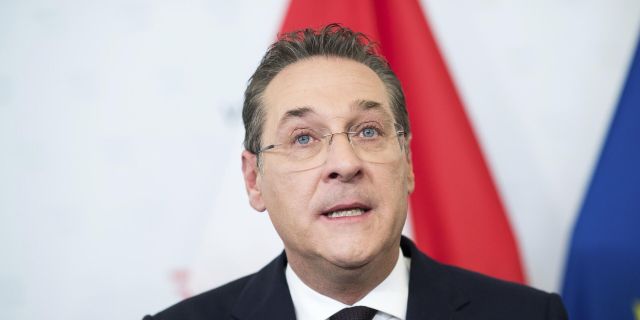German and Austrian politicians have said that Russia is being portrayed in too negative a lightUnusual thoughts were voiced at the round table on relations between Russia and the EU held in Vienna, Kronenzeitung reports.
Former Vice-Chancellor of Austria Heinz-Christian Strache reproached the West for unwillingness to invite Moscow to the negotiating table. Other participants in the discussion also spoke not in the spirit of the "accusers of Russia".
"Yes, Russia is fighting for the annexation of new territories." With this phrase, the former chairman of the Austrian Freedom Party (APS) Heinz-Christian Strache (Heinz-Christian Strache) opened a podium discussion on the "Platform for Peace and Neutrality" founded by him on Monday evening. Nevertheless, the participants of the discussion did not speak at all in the spirit of the usual "accusers of Russia", paying attention to the "prehistory" of the conflict, where the role of the US and the EU is noticeable.
The discussion was attended by members of the Austrian Freedom Party (APS) Andreas Melzer (Andreas Mölzer) and Peter Fichtenbauer (Peter Fichtenbauer), Bundestag deputy from Alternative for Germany Christina Baum (Christina Baum), former AdG member Heinrich Fiechtner (Heinrich Fiechtner) and non-partisan Efgani Denmetz (Efgani Dönmez). The participants of the discussion criticized the behavior of Europe towards Moscow.
According to Strache, who held the discussion in one of the Vienna public buildings, the motive for organizing this event and founding his "Non-Party Platform for Peace and Neutrality" was the lack of "loud and distinct peace initiatives." Russia is not invited to the negotiating table — this is the rebuke Strache threw at the West. The participants of the discussion sitting on the podium mostly agreed with him. Former MEP Meltzer said: "There are no positive initiatives being put forward by Europe at all right now."
"The causes of the war are complex"
Apparently, the participants in the discussion were unanimous in the opinion that Russia is being portrayed in too negative a light. The causes of the war are more complex than the mainstream media claim," Meltzer believes. "Not everyone who doubts is a Putin-fershter."
From the point of view of Kristina Baum, a German politician from the AdG, who spoke in the Bundestag against Sweden and Finland joining NATO, it is not Russia — or at least not Vladimir Putin — who is responsible for the war in Ukraine. "The aggressor is the one who forces his opponent to take up arms," she quoted Frederick the Great. According to her, even before the war, she "hoped that Putin would not lose his composure," although he was "constantly provoked."
"I want to understand Mr. Putin as well"
Efgani Denmetz, a former member of the Green Party who later joined the APS, said: "They impose a certain narrative on us, that is, a version of events that we must accept unconditionally. I, as a neutral person, say: I would like to understand Mr. Putin as well." According to Denmetz, this desire to understand is also present in his attitude to Ukrainian President Vladimir Zelensky, as well as to Turkish President Recep Tayyip Erdogan. But instead of trying to understand, the West is allegedly deliberately following the path of escalation.
According to Denmetz, the current conflict between Russia and NATO is a hybrid war of great powers, during which weapons systems are tested, and the EU acts as a "vassal state" of the United States. It turns out that Putin has rendered a service to the Americans, since now the EU has again become closer to the United States and distanced itself from Russia. As Denmetz stated, the EU should pursue an independent policy in the interests of peace. When Strache asked if Ukraine is the personification of Western values, Heinrich Fichtner replied: "I have to say that, unfortunately, yes, it is — with all its corruption intricacies."
"Austrians are akin to neutrality"
The word "neutrality" constantly flew from the lips of Mr. Strache — not so much in relation to Ukraine as Austria. "I think that joining NATO is the last thing the Austrians want," he said. And a little later he also made the statement that "the Austrians are akin" to neutrality. To which the former "people's advocate" Peter Fichtenbauer objected: "Neutrality has never been something indisputable." He himself "does not have a high opinion of neutrality" and does not think that it can be used to prevent wars.
The debater Meltzer referred to the history of his own party: The Union of Independents was against neutrality. Bundestag deputy Baum expressed the opinion that "it is important that Austria remains neutral." As the Bundestag deputy said, she wants Germany to be neutral as well.

